Doing good doesn’t always work out as expected. A regular entering his local pub takes pity on an old lady seemingly fishing with a bent stick and string in a kerbside pool of rain. He invites her in for a drink. As she raises her gin and Dubonnet, he asks amiably: ‘So how many did you catch today?’ ‘You’re the eighth,’ she replies.
Imagine another pub scene. As lockdown is relaxed, a customer’s order of three pints of bitter and two G&Ts is refused by the landlord: ‘Sorry, Squire, but according to my government boozometer that takes you over your permitted weekly Alcoholic Spending Limit of £100. You signed for two rounds on Sunday. Records also show two bottles of Prosecco at Pedro’s Wine Bar with a companion last Thursday (did your wife know about that?) and a six-pack of Heineken from Sainsbury’s for Arsenal’s last game on TV.’
With 7.5 million of Britain’s drinkers showing signs of alcohol dependency, and 358,000 estimated hospital admissions each year resulting from alcohol, some argue for legally imposed limits on alcoholic intake or spending. But no government would dare risk the kind of nanny-state furore that would follow attempted legislation to restrict what individuals spend on alcohol. Gambling, however, has become a politically fashionable target.
Having succeeded in persuading the government to cut the maximum stakes on betting-office machine bets from £100 to £2, MPs on the Gambling Related Harm All-Party Group are in full cry. The Gambling Commission they have labelled ‘unfit for purpose’ is examining plans for stakes limits on online bets and the introduction of ‘affordability checks’ on online punters. The government’s own gambling law review includes tougher restrictions on gambling advertising. We face the prospect of trying to put a fiver on a fancy in the 2.45 at Hereford only for laptops to flash up a message prohibiting the bet because we have already passed our ‘Mabel’ (shall we call it) or ‘Maximum Allowed Betting Loss’ for the month.
Nobody would deny that there are problem gamblers whose addiction has wrecked lives. That is why the NHS has gambling-addiction treatment centres and support groups exist. Bookies nervously flood their websites with warnings. But the Royal College of Psychiatrists has estimated that gambling becomes a problem for only about nine punters in every 1,000, and, before a government desperate for some approving tabloid headlines gets carried away, Tory MPs should consider the implications of restricting the freedom of millions to spend their leisure pounds as they wish in the cause of curbing problem gambling among that tiny minority.
Just imagine the degree of intrusion into private data involved in imposing restrictions on bet sizes and measuring how much each punter can afford to lose, the probing ministers would be authorising into our personal finances and who we bet with, the massive bureaucracy required. Rather than disclose their accounts, many would instead head for the unsupervised black market. Like alcoholics who become adept at concealing bottles in wood piles or lingerie drawers, gambling addicts denied access to one betting source will soon find another.
What really concerns me, though, is that while we can argue about the size of the nut, the anti-gambling sledgehammer now seemingly favoured by our legislators could do much collateral damage to people they are forgetting. Many years ago our parliamentarians, well lunched at the time by bookmakers, decided not to opt for a Tote monopoly out of which the second most watched national sport could be comfortably financed while giving the Treasury a good cut too (as in France or Hong Kong) but to leave racing’s finances forever dependent on a levy taken from the betting industry.
NHS research has shown that only 2.8 per cent of those who bet on horse racing are at risk of gambling addiction. Less than 10 per cent of racing TV audiences are under 25 (the gambling age group most concerning MPs). But if gambling takes a big hit from do-gooding legislators, it is racing that will be hit the hardest. Senior figures at the British Horse Racing Authority believe that affordability checks at the level being considered would cost the sport, already under massive pressure from Covid, around £60 million a year. Meanwhile major restrictions on gambling advertising could imperil racing’s crucial coverage on terrestrial TV and cut its income from media rights.
Horse racing is a £4 billion industry that employs 18,000 people directly and supports the livelihoods of 80,000 more. MPs, 13 million of whose constituents will have a flutter on the Grand National, should realise that the route down which the anti-gamblers are driving the government won’t just be a previously unthinkable intrusion into people’s right to spend their money as they wish. It will mean the closure of racecourses and racing yards, costing thousands of jobs in rural areas. Do they really want that?
Got something to add? Join the discussion and comment below.
Get 10 issues for just $10
Subscribe to The Spectator Australia today for the next 10 magazine issues, plus full online access, for just $10.
You might disagree with half of it, but you’ll enjoy reading all of it. Try your first month for free, then just $2 a week for the remainder of your first year.

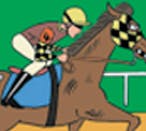
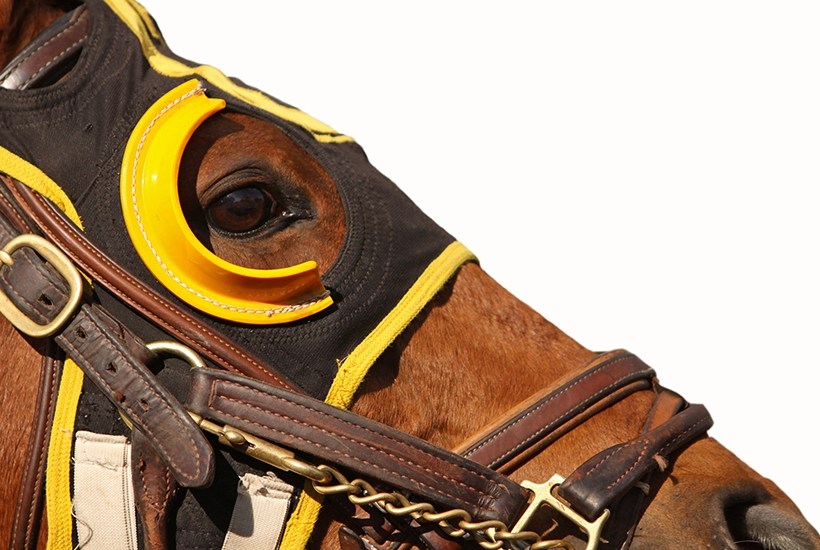
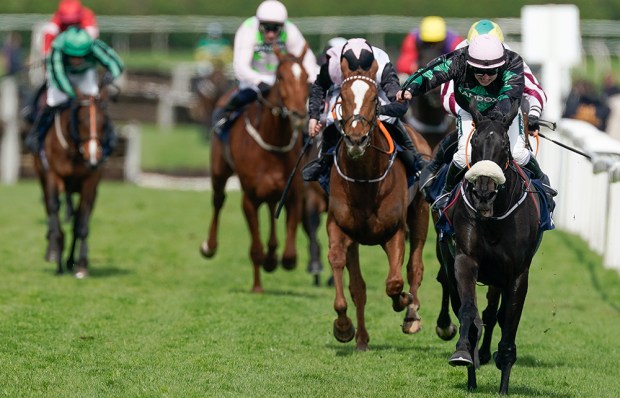
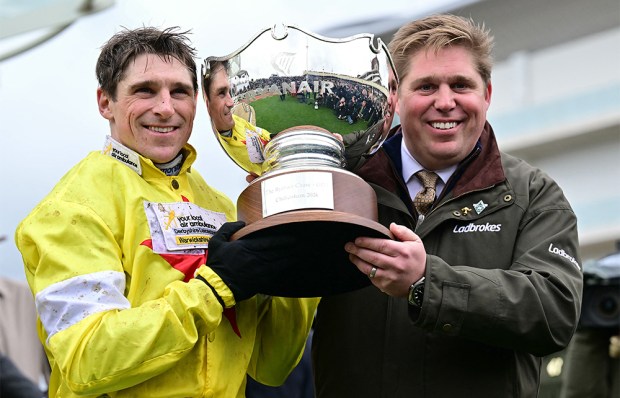
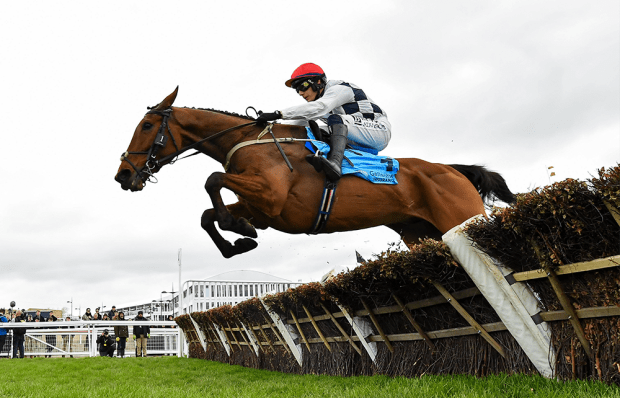
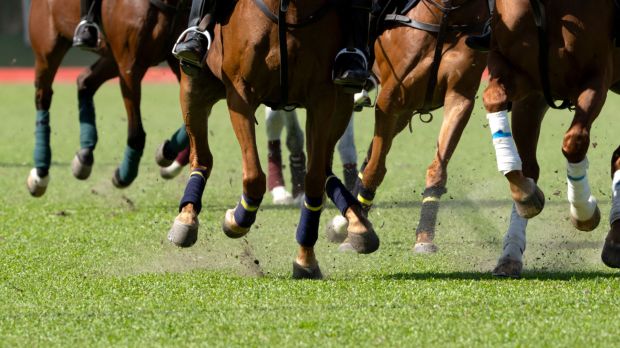

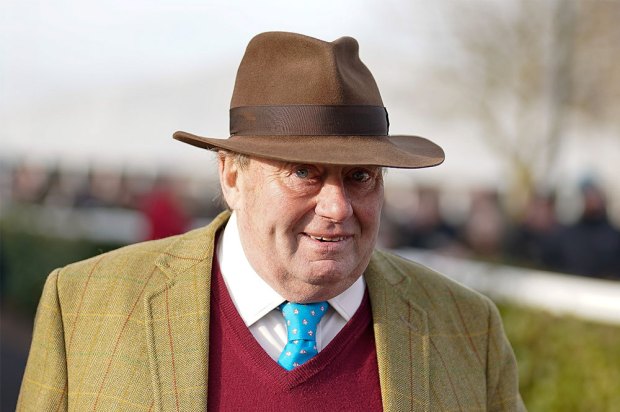






Comments
Don't miss out
Join the conversation with other Spectator Australia readers. Subscribe to leave a comment.
SUBSCRIBEAlready a subscriber? Log in